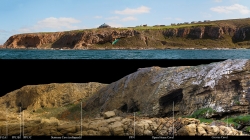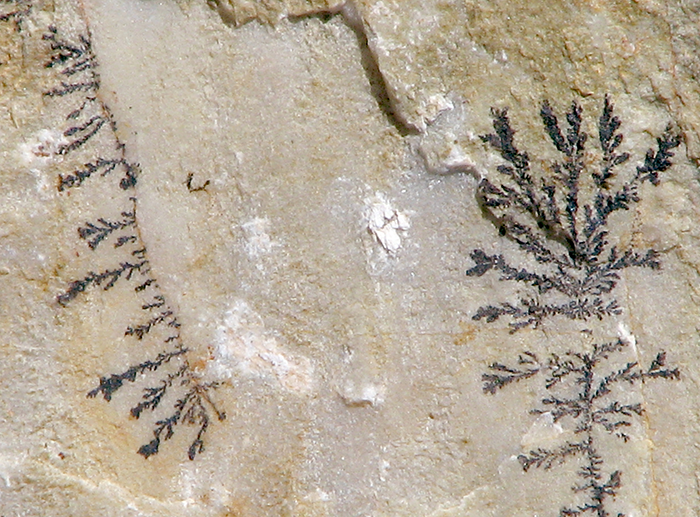
Research into human origins includes looking at the microscopic rings of ancient teeth to drilling deep into the earth to understand climate change over millions of years. Here is a view in to the search for our human origins!
Discover: Mossel Bay, South Africa
South Africa is known as the "Cradle of Humankind." A great variety of early human-ancestor fossil skeletons have been found there. Along the southernmost coast of South Africa, high cliffs hug a rocky coast. This protected the caves in the cliffs from people and animals who could have disturbed artifacts left by early modern humans from 160,000 to 50,000 years ago. Over the last 15 years, scientist Curtis Marean and his team have explored and excavated these caves. They have discovered the earliest evidence of using shellfish for food, fire to heat treat stones for stone tools, and the use of red ochre, possibly for body painting. Using modern scientific techniques, the team is learning more about how these early peoples lived. Follow the team into the caves to learn more.
Images courtesy the international research team SACP4, led by Arizona State University Institute of Human Origins Associate Director Curtis Marean.
Discover: Hadar, Ethiopia
The science of paleoanthropology begins with discoveries in the field. And it is exciting to find a real fossil! The famous fossil "Lucy" was discovered in 1974 by Donald Johanson in the dusty hills of Hadar, Ethiopia. Scientists continue to return to the same area to look for more fossils of our ancient ancestor, Australopithecus afarensis, along with the fossil skeletons of animals that lived around the same time—3.2 million years ago. Follow along as a group of scientists and students trek out to the field in search of fossils!
Image credits Benjamin Reed
Be Part of
Ask An Anthropologist
By volunteering, or simply sending us feedback on the site. Scientists, teachers, writers, illustrators, and translators are all important to the program. If you are interested in helping with the website we have a volunteers page to get the process started.



